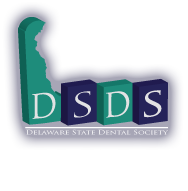

|

|

|

|


Friday, November 22, 2019 (AM)
REQUIRED FOR2020 LICENSE RENEWAL
The November 22 AM course is closed for registration due to full capacity.
Infection Control & OSHA Update

8:30 AM — 12 Noon
3 CE CREDITS
Hilton Wilmington/Christiana Hotel
Newark, Delaware
NOTE:
LUNCH NOT INCLUDED
John Molinari, Ph.D.
This seminar will provide an update on occupational blood borne and respiratory infection risks for dental health-care professionals, as well as a practical discussion of current infection prevention regulations and recommendations for dentistry. The most recent CDC recommendations concerning blood borne pathogens and infection control will be presented, along with updates on OSHA regulations as they pertain to dental settings. Hand hygiene, vaccinations, and other preventive measures (i.e. personal protective equipment, instrument reprocessing, disinfection, and dental water asepsis) are frameworks for this presentation. This seminar will also discuss representative viral and bacterial respiratory diseases which present occupational challenges for dental health care providers. These include influenza, pertussis, tuberculosis, as well as airborne infections caused by Legionella bacteria. The most recent evidence-based information is also discussed to address certain issues where perceptions and misuse of infection control procedures and products are in conflict with scientific and clinical knowledge.
Course Objectives:
- Understand the most recent updates for CDC infection control recommendations
- Understand the rationale for effective, hand-hygiene procedures as fundamental components of an infection control program
- Describe the challenges bloodborne and respiratory infections present to dental healthcare workers
- Comprehend the most current vaccination recommendations for dental personnel
- Describe recent technology advances and protocols for instrument processing and sterilization
- Describe the use of disposables and disinfectants used in environmental surface asepsis
- Describe factors which can lead to dental unit waterline (DUWL) contamination












